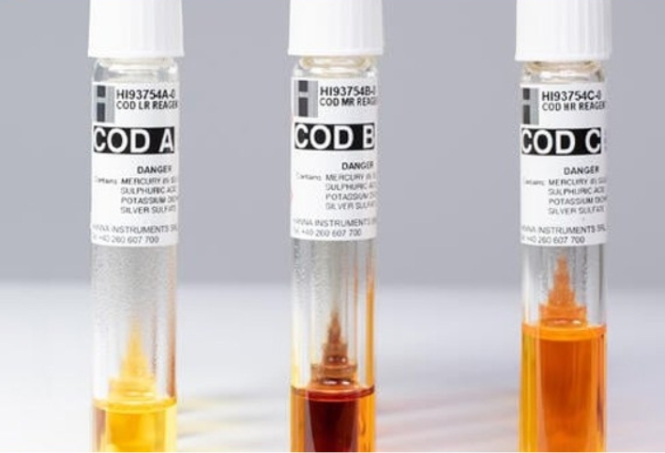Wastewater treatment is a highly technical process. To ensure the treated water meets discharge standards, accurate testing of wastewater is an essential step. Parameters like BOD, COD, and TDS are crucial indicators of water quality in wastewater treatment. These standards not only help enterprises understand the pollutant content in wastewater but also provide a basis for selecting appropriate treatment equipment.
- BOD (Biochemical Oxygen Demand): BOD measures the concentration of organic pollutants in water, indicating the amount of oxygen required by microorganisms to decompose organic matter. A high BOD value indicates high levels of organic matter and severe pollution. For wastewater with high BOD, MBR systems (Membrane Bioreactors) and aerators are commonly used solutions that efficiently degrade organic pollutants.
- COD (Chemical Oxygen Demand): COD refers to the amount of oxygen required to chemically oxidize organic substances in water and is a quick way to assess pollution levels. Compared to BOD, COD provides a faster reflection of pollution. For wastewater with high COD, DAF systems (Dissolved Air Flotation) are often used to remove grease and suspended solids, reducing organic loads.
- TDS (Total Dissolved Solids): TDS indicates the concentration of all dissolved substances in water, such as salts, minerals, and metal ions. High TDS levels may cause corrosion or scaling issues in production equipment. RO systems (Reverse Osmosis) and EDI systems (Electrodeionization) can reduce TDS and provide high-purity recycled water.
- pH and ORP Values:pH measures the acidity or alkalinity of water, typically requiring wastewater to maintain a pH level between 6 and 9. ORP (Oxidation-Reduction Potential) measures the ability of water to perform oxidation-reduction reactions and is used for monitoring disinfection effectiveness. PH/ORP controllers are core devices for accurately monitoring these two parameters.
- SS (Suspended Solids): SS refers to insoluble solid particles in water. Removing SS is the first step in wastewater treatment. Common equipment includes screw presses, plate and frame filter presses, and belt filter presses, which efficiently separate solids and liquids, reducing the load on subsequent treatment systems.
As Thailand raises its wastewater discharge standards, companies are increasingly prioritizing equipment performance and compliance when selecting treatment solutions. Understanding parameters like BOD, COD, and TDS helps enterprises assess water quality and choose the right equipment. Investing in high-efficiency MBR systems, RO systems, and PH/ORP controllers, combined with scientific testing and management, can help companies achieve compliant discharge while advancing energy conservation, environmental protection, and sustainable development.
#Thailand Purchase and Sales · Wastewater & Pure Water · GFS Tanks · Water Pumps · Sludge Pumps · Air-Suspension Blowers


